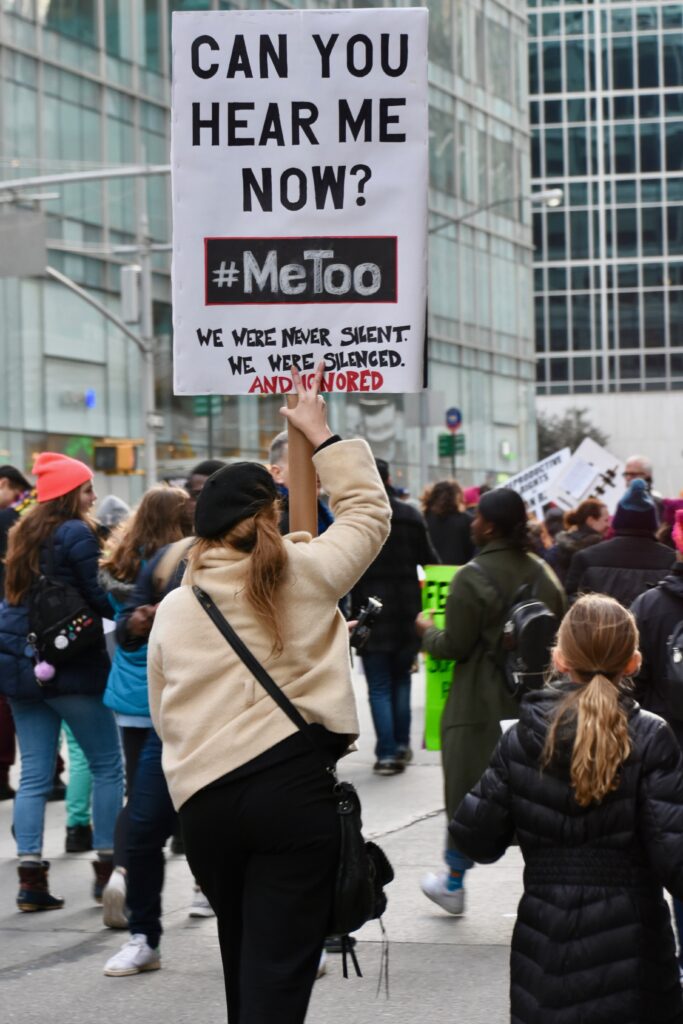Youth counselor Tarana Burke empowers women to stand up against sexual harassment

Tarana Burke, an activist who worked at a youth camp for Black girls, encouraged them to express their anxieties and intimate stories.
At the camp, Burke encountered a girl named Heaven who took a liking to her; Burke found that the girl was hyper and struggling with anger, she was always pulling the girl out of trouble.
According to the activist, Heaven revealed to Burke that her mother’s boyfriend had been sexually abusing her. A survivor of sexual assault herself, Burke found the girl’s story to be troubling. She referred Heaven to another counselor, and afterwards wished she had told the girl “me too.”
“I will never forget the look on Heaven’s face,” Burke said. “The ‘Me Too’ movement started in the deepest [and] darkest place in my soul.”
In 2006, Burke founded the ‘Me Too’ movement, to empower vulnerable women through solidarity and empathy who have experienced sexual harassment, encouraging them to stand up for themselves, according to Wikipedia.
She was born on September 12, 1973 and grew up in the Bronx, New York. Burke was sexually assaulted twice in her young life. Burke’s mother encouraged her to become an advocate for young girls.
Burke attended Alabama State University, later transferred to Auburn University in Montgomery, and after college moved to Selma to become an activist.
Burke is a twice-published author of: “You are Your Best Thing: Vulnerability, Shame, Resilience, and the Black Experience,” and: “Unbound: My Story of Liberation and the Birth of Me Too movement.”
TIME Magazine dubbed Burke a silence breaker among other activist as the 2017 Person of the year. In 2018, she was named one of the Time’s magazine’s most 100 influential people.
The movement catapulted in 2017 after 1980s “Who’s the Boss” sitcom star Alyssa Milano tweeted about film producer Harvey Weinstein’s sexual assault case. Sharing her own story, she encouraged women to start using the phrase ‘Me Too.’
Burke stated that the movement’s objective was to hold perpetrators of sexual harassment accountable, and to develop solutions that will have a long-term impact on sexual harassment in the workplace. So that one day, nobody ever has to say “me too” again.
The movement has made various impacts on academic institutions, churches, and included false sexual harassment claims.
In 2017, the ‘Church Too’ movement was created in response to the trending ‘Me Too’ movement to stop abuse in the church.
In early 2018, an Evangelical women created the hashtag #SilenceIsNotSpiritual as a way to spotlight how abuse is handled in the church. This was a response to a video admission of a youth pastor who assaulted a 17-year-old girl.
The ‘Me Too’ movement also came to the University of California. Hundreds of reports emerged from UC Berkeley, UC Irvine, UCLA, and UC San Diego. A sexual harassment case in UC Irvine led to the removal of several officials and professors.
The movement also highlighted false claims of sexual harassment that dampered the majority of allegations. Wrongful accusations are only 2% of 10% of all reports, according to Wikipedia.
These fallacies are the reason why some women are scared to report being sexually assaulted or harassed. They are afraid no one will believe them or fear being embarrassed or humiliated, which may expose them to other assailants.
There are critiques of the ‘Me Too’ movement for lacking in the representation of minority women, especially when these women are more likely to be targeted.
“If wealthy, highly-visible women in the news and entertainment are sexually harassed, assaulted, or raped, what do we think is happening to women in retail, food service, and domestic work?” asked activist Charlene Carruthers.
According to survivor Farah Tanis, there are social pressures on Black women not to report Black men; they may be viewed as disloyal against their “brothers”
Burke herself criticized the movement for ignoring Black women, and encouraged women of color not to drop out of the movement even if the media is not listening.
“This is your movement too,” she said. “When your life is forever changed by sexual violence, where can you turn? Who can help you? What are the words you need to hear most?”
The movement’s work continues to bring awareness to the growing range of survivors, such as Black women and girls, and the LGBTQ+ communities.
“We’re here to help each individual find the right point of entry for their unique healing journey,” Burke said.